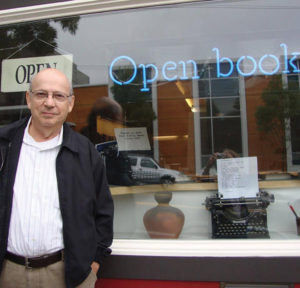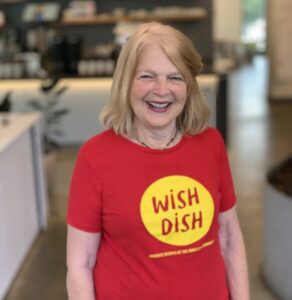Having taught public relations and writing at Emerson College and Boston University, Zvi “Skip” Sesling knows a thing or two about getting the word out.
Apparently, his efforts have paid off as he was recently named the Poet Laureate of Brookline and is engaged on a speaking tour that will take him to New England Mobile Book Fair in Newton on August 23 and Brookline Booksmith on October 12.

According to Poet Laureate Program Director Gillian Jackson, Brookline is a natural site for its own laureate program as so many prominent writers make or have made their home there. And while the town has done much to support its resident artists, Jackson wanted to do more for poets in particular.’
“A poet laureate appointed by the Brookline Board of Selectmen would help to bring poetry into the community,” she maintained when the program began in 2012 (under the auspices of the Brookline Center for the Arts) , noting how the tradition of appointing such lyrical leaders traces its lineage back to Ancient Greece and how many other cities and towns in the Commonwealth enjoy such programs.
Among the criteria for eligibility are residence in Brookline, a “demonstrated commitment to the community,” and “the ability and enthusiasm to fulfill the duties of the Poet Laureate.”
As he has lived in the area for most of his life and has he has no end to enthusiasm for his writing and his neighbors, Sesling was an ideal choice. In his new role, he will not only offer readings, but also present and support poetry in schools, senior and teen centers, and other centers of community life.
Before being named Poet Laureate, Sesling had published his poetry in numerous publications and journals in the US and UK, and as far away as India and Israel (where he won first prize in the Reuben Rose International Poetry Competition).
“My father arrived in Israel in 1912, helped found a kibbutz in 1921 and spent his life working for Israel,” Sesling recalls, noting that his mother immigrated to the Jewish state from Germany in 1933 and met his father there.
As the brother of a Sabra and the nephew of Israel’s first Minister of Agriculture, Sesling has visited Israel at least 15 times and lived there for a time as well.
“I have been a lifelong supporter of Israel.” he says proudly.
Closer to home, the four-time Pushcart Prize nominee and Massachusetts Poetry Book Award nominee has strong ties both to the Jewish community and the writing community. When not in Israel, he serves as a reviewer and editor for Boston Small Press and Poetry Scene and Muddy River Poetry Review. Sesling even helped bring the two communities together at the first Jewish Poetry Festival, at Temple Sinai, where he was a featured reader.
“I have always been connected to the Jewish community by working in it,” Sesling maintains, noting that Israel is among his top topics when it comes to writing. When asked what some of the others are, Sesling mention such diverse topics as baseball and war. This last topic is prominent in the book from which Sesling will draw most during his forthcoming Laureate reading tour. It is called, War Zones.
“War Zones” is based mostly on the Vietnam War and its aftermath,” Sesling explains, “as well some of the wars after that.”
This would appear to be quite a different set of stories than those told in his previous book, The Lynching Of Leo Frank.
“That book is based on 30 years of writing Jewish poetry,” Sesling says of the book that was nominated for the National Jewish Poetry Book Award, “and included the title poem as well as ‘Mumbai’ about the attack on the Jews of that city by Muslim terrorists.”
Reading his penultimate book, First Literary Review Editor Cindy Hochman likened Seling to Langston Hughes, citing what she called an “impassioned ‘Hear oh Israel’ cadence of a rabbi, the wisdom of Solomon, and his own trademark reverent irreverence” and positioning the volume as Sesling’s own “Haggadah of a rich…history that calls from the souls of his ancestors.”
No matter the venue or the topic, however, Sesling says that he always tries to make his audiences think and laugh, even when discussing what are in many ways difficult and challenging ideas.
“I read the poems and often explain some of the background or reasons I wrote them,” he says, “and I always try and inject some humor!”
